After attending the Textual Editing Modernism in Canada Summer Institute, Editing Modernism on and Off the Page in August of 2013 at UBC Okanagan, Mathieu Aubin was inspired by what UBC was able to offer its graduate students on its sister campus.
“The Summer Institute was co-led by Dr. Karis Shearer, and when I met her, I realized that she and I shared many similar research interests and I left the institute wanting to work with her on my PhD.”
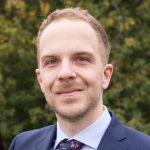
Mathieu Aubin
Aubin completed his doctoral degree in November of 2019, and is now a Horizon Postdoctoral Fellow at Concordia University in Montreal, as part of the SpokenWeb research team. Aubin’s dissertation examined the intersection between Vancouver’s queer small presses and lesbian and gay liberation movements, and as a Horizon Postdoctoral Fellow at Concordia, he continues to pursue his passion by working with a new media: audio recordings of events that included LGBTQ2+ people.
His Postdoctoral Fellowship is supervised by Dr. Jason Camlot (Principal Investigator of the SpokenWeb project) and Dr. Steven High (Founding Member, Centre for Oral History and Digital Storytelling).
Aubin became familiar with the SpokenWeb project through Dr. Shearer’s work as Director of the AMP Lab and the SoundBox Collection while he was a student here at UBCO. SpokenWeb is a SSHRC-funded project that digitizes and makes publicly available audio recordings of poetry events, literary community discussions, and oral literary histories.
Due to his previous experience with oral histories and strong interest in literary events, Dr. Shearer recommended that he apply to be a Horizon Postdoctoral Fellow. After submitting a comprehensive research statement and completing an interview, he was awarded the position. Aubin now co-leads the oral literary history component of the project of the SpokenWeb team, which includes faculty members, postdoctoral fellows, and graduate students in the departments of English and History.
“Because SpokenWeb is a multi-institutional project, my new postdoctoral work keeps me connected to UBCO’s SpokenWeb team.”
As part of the project, his research focuses on comparatively analyzing oral literary histories by queer literary agents and audience members who participated in or attended literary events during the 1970s-1980s. It considers how these events functioned as nexuses of queer community exchange and aims to shed light upon the significance of literary events as crucial sites of queer cultural activism across Canada. Aubin is passionate about listening to the stories and concerns of LGBTQ2+ people and being an active agent in synthesizing these bodies of information to tell compelling stories about their lives.
The Secrets of Mathieu’s Success
Some of the key highlights Aubin talks about during his time at UBC include: co-organizing a graduate student conference during the first year of his PhD, participating in Dr. Jeannette Armstrong’s Indigenous Theory course, as well as Dr. Anderson Araujo’s Imagism course, receiving the Provost Teaching Assistant and Tutors Award, attending Cornell’s School of Criticism and Theory, living at UBC Vancouver’s Green College for two years (as the first UBCO student to do so), receiving the Gibson Citation for his outstanding contributions to the college, and working closely with Dr. Shearer on the UBCO SpokenWeb programming at Congress at UBC Vancouver in June 2019.
While in Vancouver at the UBC Green College, he had the opportunity to access important archives on a regular basis, interview literary agents, and be part of a vibrant interdisciplinary research community. Being away from Kelowna introduced Aubin to a new community, but he and Dr. Shearer met every other week to keep in touch. They also made sure to meet in person when they were in each other’s respective cities.
“I always felt that I could rely upon Dr. Shearer’s support when I was working through tricky research partnerships, the discovery of sensitive research materials, looking for resources to answer my research questions, and responding to difficult rejections.” Aubin notes.
Aubin says he relied upon a community of supporters including Dr. Shearer as his supervisor, as well as the members of his committee, Dr. Constance Crompton, Dr. Anderson Araujo, and Dr. Ilya Parkins, all without whom he believes his doctoral experience might have been more difficult.
“Dr. Shearer believed in me, provided very strong research and writing guidance, guided me through the administrative quirks of a university, and became a very trusted friend.” He notes.
He also benefited from the mentorship of his teaching assistant supervisors Dr. George Grinnell and Dr. Kyong Yoon, as well as the IGS program coordinator, Dr. Margaret Reeves.
“Whenever I spoke with her [Dr. Reeves], I felt as though she was rooting for me and gave me that extra boost of confidence that I hadn’t realized that I needed.”
UBC supported my passion by providing me a rich queer-friendly graduate student research community and doctoral committee that was interested and invested in my research.
Unique to the Okanagan campus, the AMP Lab provided Aubin the opportunity to learn about Vancouver’s literary history through rare audio recordings and to develop his digital humanities skills. The Centre for Scholarly Communication in the Library ensures that graduate students and postdocs feel supported in any of their writing projects.
“When speaking with my friends at Green College who did not have access to this service, but likely would have benefited from it, I realized how lucky I was to have the Library’s resources.”
Moreover, having completed parts of his PhD at both UBC Okanagan and UBC Vancouver, Aubin says that he always felt comfortable at UBC Okanagan.
“Whenever I visited UBC Okanagan, I always felt as though I was going home, in spite of being born and raised in eastern Canada. I felt as though there was a sense of community amongst faculty members, graduate students, and between graduate students and undergraduate students.”
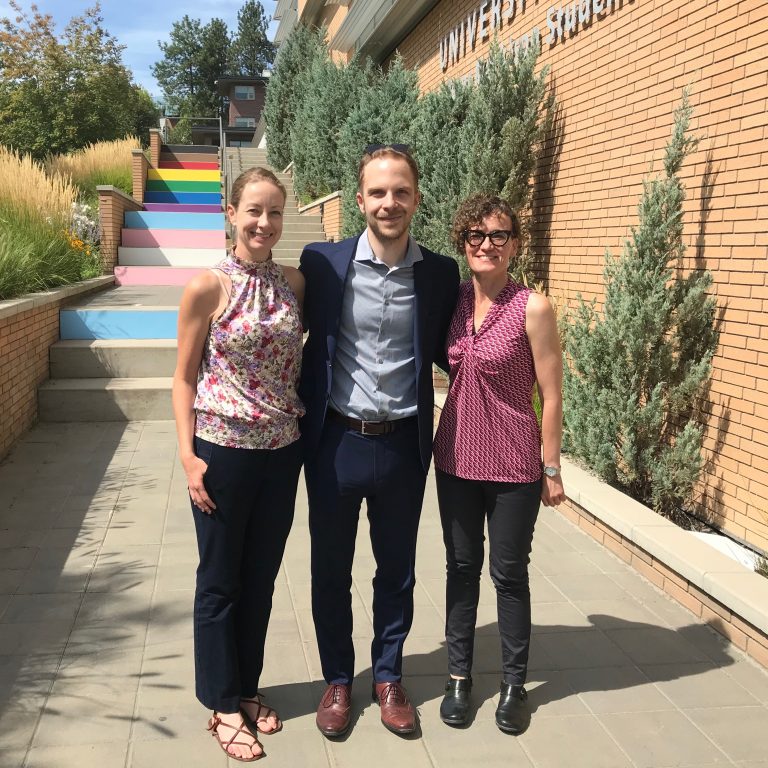
Mathieu Aubin (centre), pictured here after his doctoral defence with PhD supervisor, Dr. Karis Shearer (left), and external examiner, Dr. Heather Milne, Associate Professor of English, University of Winnipeg (right).
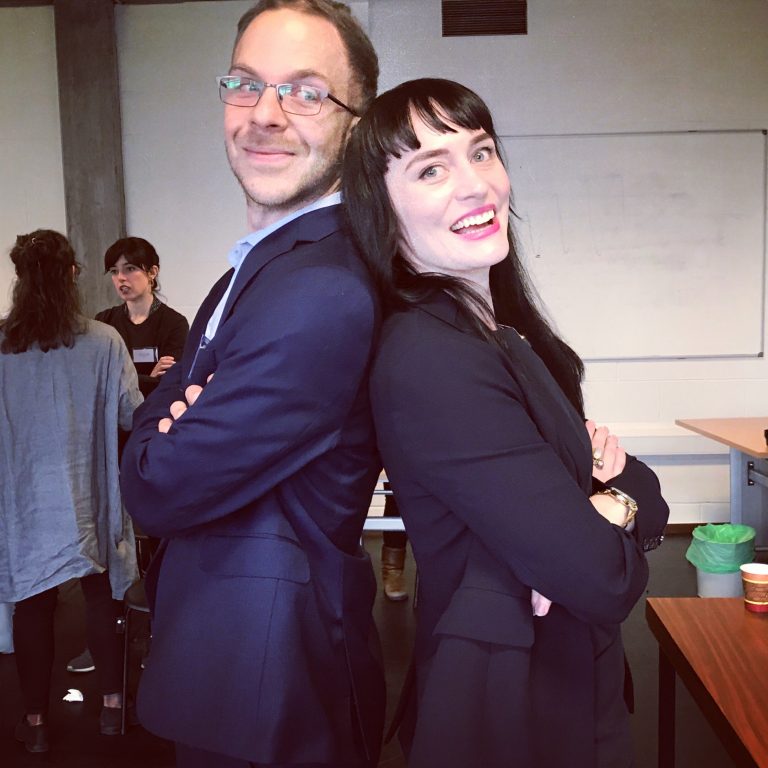
Mathieu Aubin with colleague and friend, Julia Polyck-O’Neill at the TEXT/SOUND/PERFORMANCE: Making in Canadian Space, UC Dublin Conference, April 2019
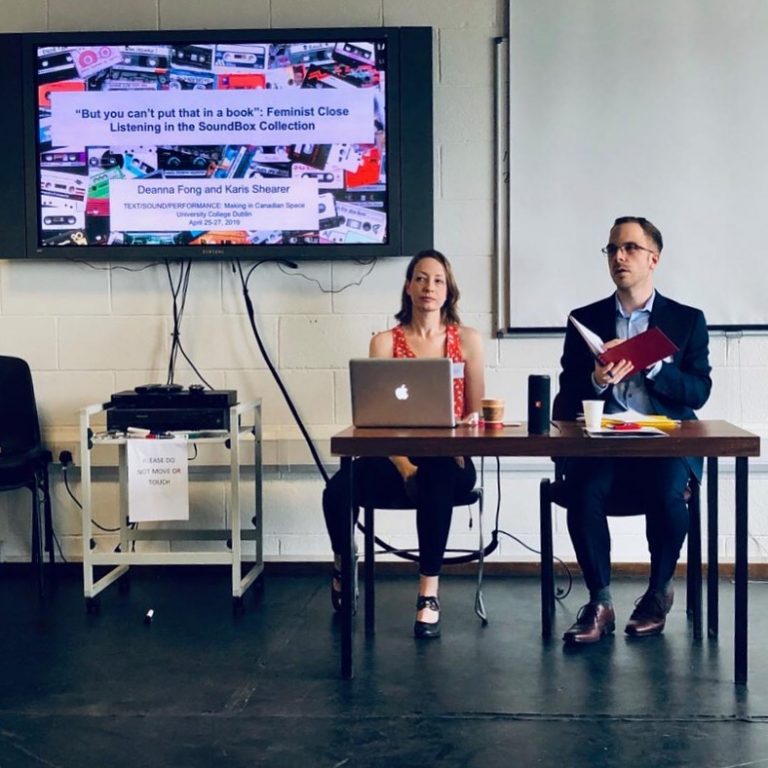
Mathieu Aubin with Dr. Karis Shearer at the TEXT/SOUND/PERFORMANCE: Making in Canadian Space, UC Dublin Conference
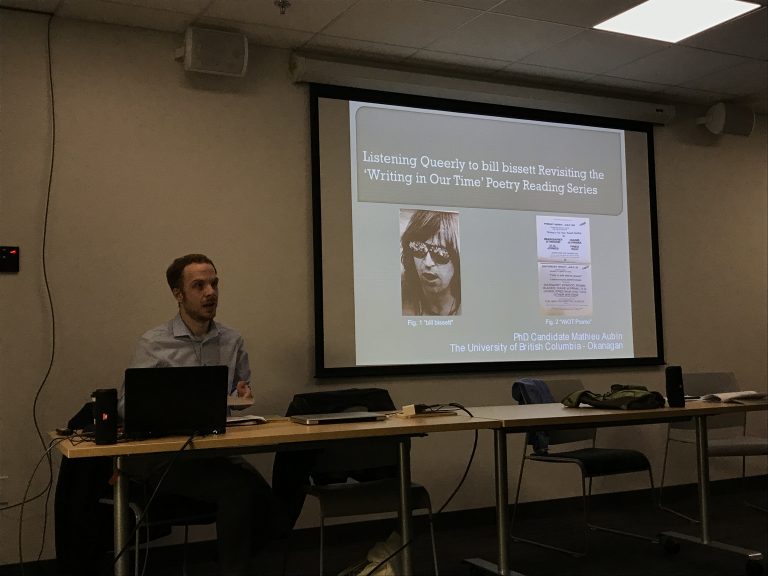
Mathieu Aubin presenting on the SoundBox-SpokenWeb panel, Congress 2019
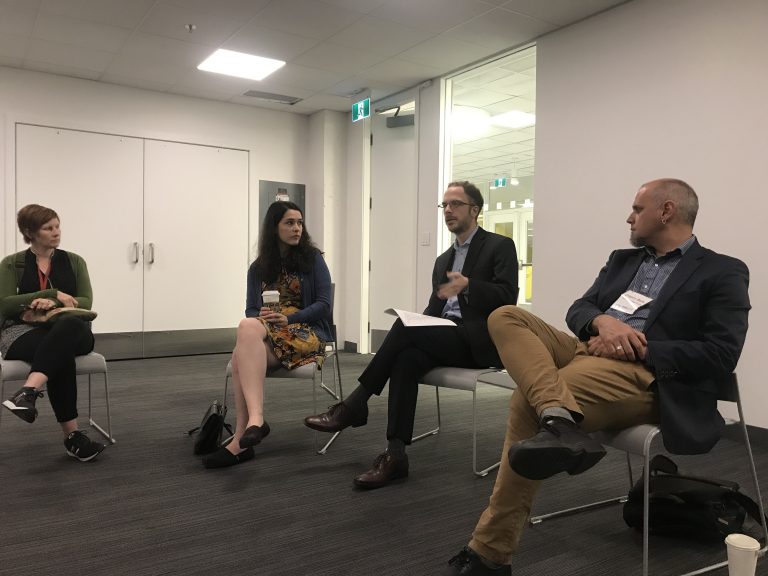
Mathieu Aubin leading a “Curated Close Listening” on bill bissett, at Congress 2019